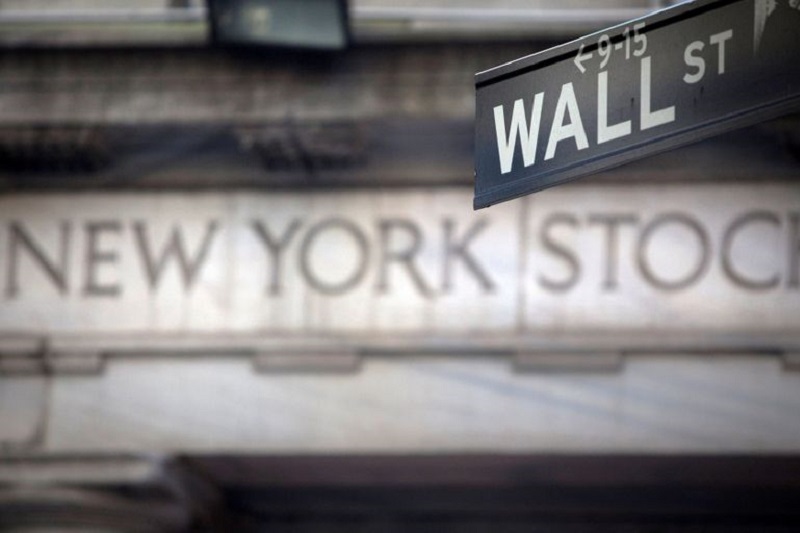By Peter Nurse
Investing.com -- Gold and oil prices slump amid worries of growing Covid cases in China and the possibility of early Fed tightening, while bitcoin recovers. Fedspeak will also be in focus, with Raphael Bostic and Thomas Barkin scheduled to talk later Monday. Also of interest will be the passage of the long-awaited U.S. infrastructure bill. Here's what you need to know in financial markets on Monday, 9th August.
1. Gold, oil prices slump
Hurting sentiment Monday has been sharp falls in gold and oil prices as investors attempt to digest the growing number of Covid-19 cases, primarily in China, as well gains for the U.S. dollar after Friday’s strong nonfarm payrolls release.
The number of cases in China has hit a six-month high, with millions of people now put under lockdown and mass testing being conducted across the country. China is the largest exporter of oil in the world, as well as the second largest consumer, and these measures will likely curb economic growth and oil demand.
Goldman Sachs downgraded its economic growth forecasts for China, cutting its full-year GDP growth forecast to 8.3% from 8.6%, according to a report released late Sunday, with the current quarter reduced to 2.3% from 5.8% previously.
By 5:25 AM ET (0925 GMT), U.S. crude futures were down 4.4% at $65.30 a barrel, after falling nearly 7% last week, the steepest weekly decline in nine months, while Brent futures were down 4.1% at $67.78 a barrel, having dropped 6% last week, the biggest weekly loss in four months.
Gold prices also slumped to the lowest level since March, falling below $1,700/oz before posting a minor recovery to currently change hands for $1,746.70/oz, 0.9% lower, around 4% lower over the last week.
The sharp drop in Asian trading raised speculation of a forced liquidation, but the jobs report also resulted in the dollar and bond yields trading higher, never a good combination for commodities.
2. Fed speakers to add to tapering debate
With Friday’s jobs report causing fretting in the market about the potential of early tightening, speeches from various Federal Reserve members will be studied carefully this week.
Atlanta Fed President Raphael Bostic and Richmond Fed head Thomas Barkin start the ball rolling on Monday, followed by Chicago Fed President Charles Evans on Tuesday and Kansas City Fed President Esther George on Wednesday.
The tide seems to be turning towards a tapering of the Fed’s massive bond-buying program being announced this year, something that influential member Richard Clarida suggested as a possibility last week.
Bostic and Barkin are also known to lean towards tapering so their comments will be closely watched later Monday.
3. Stocks set to open lower; earnings continue
U.S. stocks are set to open marginally lower, slipping from record levels after Friday’s healthy payrolls data.
By 5:25 AM ET, Dow Jones futures were down 125 points, or 0.4%, while S&P 500 futures were down 8 points, or 0.2%, while Nasdaq 100 futures edged up just 4 points, or less than 0.1%.
The blue-chip Dow Jones Industrial Average closed over 144 points, or 0.4%, higher Friday at an all-time high of 35,208.51, while the broad-based S&P 500 rose 0.2% to also post a record close. The Nasdaq Composite bucked the trend, dipping 0.4%.
The second-quarter earnings season is drawing to a close, but there are still a number of influential companies set to report this week. This includes the likes of AMC Entertainment (NYSE:AMC), Coinbase Global (NASDAQ:COIN), Walt Disney (NYSE:DIS), Airbnb (NASDAQ:ABNB) and DoorDash (NYSE:DASH).
4. Infrastructure bill
The much-debated $1 trillion U.S. infrastructure bill looks set to be put to a vote early this week, after clearing its last procedural hurdles in the U.S. Senate late Sunday, achieving broad bipartisan support.
The legislation is a cornerstone of President Joe Biden’s economic agenda, and would result in the largest U.S. investment in roads and bridges in decades.
The bill includes $110 billion in new spending for roads and bridges, $73 billion for electric grid upgrades, $66 billion for rail and Amtrak, as well as $65 billion for broadband expansion. It also provides $55 billion for clean drinking water and $39 billion for transit.
The legislation still faces challenges in the House of Representatives as the Democrats have only a very small majority.
5. Bitcoin recovery
The price of bitcoin, the largest cryptocurrency by market capitalization, slipped a little during Monday’s session, but has made something of a recovery after the dip of the last couple of months.
By 5:25 AM ET, Bitcoin traded at $43,590, down 0.3% on the day, but up over 11% over the past week, climbing above the $45,000 level.
Helping the tone have been reports, admittedly unconfirmed, that retail giant Amazon (NASDAQ:AMZN) is preparing to accept the digital currency as payment for its goods and services in the near future and Apple (NASDAQ:AAPL) is considering adding some bitcoin to its balance sheet.
That said, the pressure from officialdom continues, with the Washington Post reporting that U.S. Treasury Secretary Janet Yellen has raised objections to a potential amendment to an infrastructure bill that would exclude certain crypto companies from the reporting requirements for brokers.
